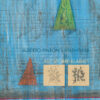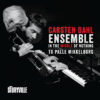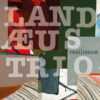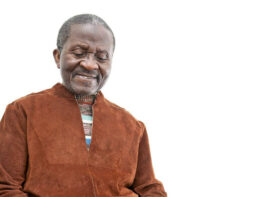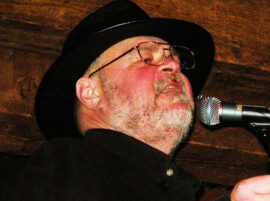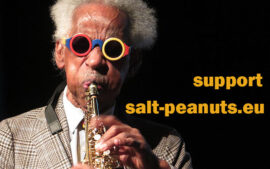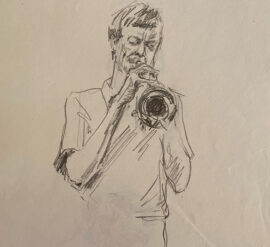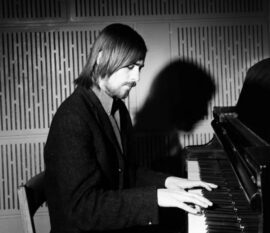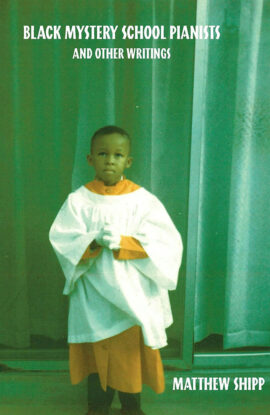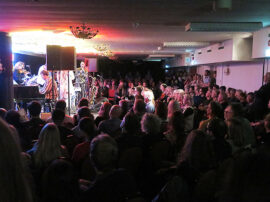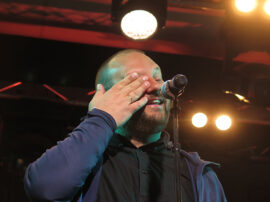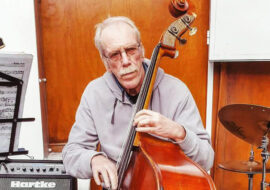
How one can make sense of the last, turbulent century. One way, as you may find out, is with a unique violin that, fled, moved and finally managed to find some peacefulness with his dedicated owner down under, in faraway Australia. «Szolnok» tells the incredible story of the violin of the grandfather of Australian violinist Daniel Weltlinger, who now plays the same violin in his new home, Berlin. His Jewish grandfather, Zoltan Fyszman, carried all his life this violin. Few times he was forced to flee from his homes, leaving with no papers and no passport but always with the violin, moving from from Budapest to Vienna to Marseilles to Casablanca to Sydney to Berlin. The compositions of the Weltlinger for his own jazz quartet tells more than just about the adventurous and colorful whereabouts of Fischman and his violin. The 12 compositions, adaptations and arrangements embrace all the musical styles and genres that his grandfather, and later Weltlinger himself, faced during their lives, ranging from classical music, through folk and klezmer music to jazz.
The story-journey begins with the title-piece, an innocent folk melody named after the place where the grandfather was born in 1902, Szolnok, Hungary. The following «Ernő» is dedicated to the grandfather’s brother, a violin virtuoso who has played the Johannes Brahms violin concerto at the Budapest Opera House in 1918 but died tragically two days later from the Spanish flu virus. Weltlinger turns a quote from the concerto into a a gentle jazz piece. The swinging «1921» tells another adventure story of the grandfather fled by foot from Hungary to Vienna, only to encounter there one of the marches of Hitler’s supporters that convinced him to keep running until he reached france. «Bonjour, Bonsoir, Adieu Marseilles» is an arrangement of Henri Alibert’s’ chanson that the grandfather most likely played in his new, adopted home-town with Marseilles’ café orchestras. The leisured atmosphere is soon changed to the dramatic, march-like «Le Chant Des Partisans/North Africa» that captures another journey, this time fleeing from pro-Nazi, French Vichy regime to Algiers, where the grandfather ended up as a chief of the French Resistance in North Africa. Later, in Casablanca, Morocco the grandfather met his wife and «Barcarolle from The Tales of Hoffman» is an arrangement of a romantic song that he played to Weltlinger’s grandmother, before the young couple was forced to move again during the uprisings against French rule that took place during the mid 1950’s.
The second half of Szolnok tells the story of settling in Sydney, Australia. The quiet and gentle ballad «Mr Fishman» paints the life of the young family down under, where the grandfather worked as a taxi driver but kept cultivating his love for classical music. «La Famille» deepens this innocent vein and tells about the family gatherings where the grandfather played his beloved instrument to his grandchildren. The touching lullaby «Tranquille à Sydney» describes the last years of the grandfather who – literally – played the violin till the day he died at the age of 96.
Weltlinger closes the circle with the uplifting, chamber jazz «2018» that jumps to the present time Berlin, but with a riff from «1921», suggesting a better vision for the 21st century. This story of a great violin and surviving family is concluded with an arrangement of the song «Estrellita» that his grandfather played at the end of his interview he gave for the American Shoah (Holocaust) Foundation.
Eyal Hareuveni
Daniel Weltlinger (vio), Uri Gincel (p), Paul Kleber (b), Mathias Ruppnig (dr, perc)


